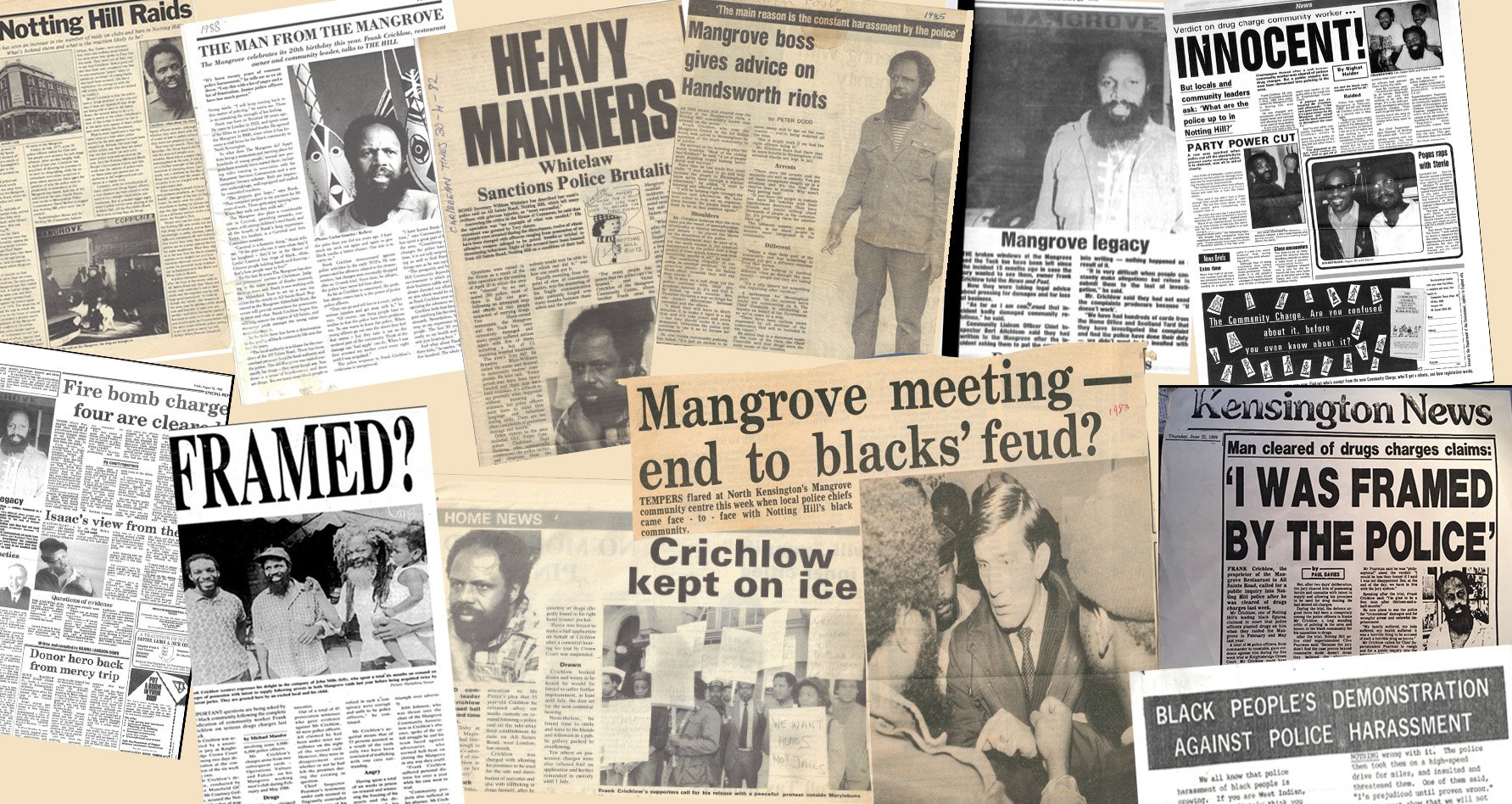History
MANGROVE
Children of the Mangrove is a social care company inspired by the social and cultural impact of the Mangrove restaurant and Community Association active in London, Nottinghill, for over 30 years during the late 1960s-2000s.
Opened by Trinidadian Frank Crichlow in 1968, the Mangrove Restaurant became a focal point for an area facing deep social and racial tensions between a growing impoverished immigrant community, the local police and the wider establishment. After attracting heavy police attention in its opening years, a protest was organized to highlight racial discrimination targeted at the Restaurant and its owner. This led to the now infamous Mangrove 9 trial in which 9 people were arrested for a range of criminal charges and identified as leaders in the emerging ‘Black Power’ movement. The trial garnered international press coverage, as all 9 were acquitted of the most serious charges. The trial was groundbreaking, as the defendants challenged the whole legitimacy of the judicial process as black people being judged by a jury of their peers, created history by becoming the first time a British Judge acknowledged behaviour motivated by racial hatred within the Police force.
The trial galvanised large segments of the black and white liberal community, establishing The Mangrove as a hub of political, cultural and social activity in the early 1970s. For the next 30 years, under great suspicion and threat from the Metropolitan Police and the Royal Borough of Kensington and Chelsea, the Mangrove firmly embedded its roots into the community.
The Mangrove restaraunt and its off-shoot community led initiatives engaged people from the broadest spectrum of society; from those most marginalised, to political and social activists.
Frank and members of the Mangrove community established projects within its eco-system such as a t-shirt printing shop to employ and distribute local artists; an internationally known Steel and Mas band; a supported housing complex for black pensioners and many other formal an informal projects. The Mangrove became symbolic, as much for its resistance to oppressive state practices, as it did for its ability to bring people together.
Exhibited here is a collective visual representation of the articles documenting the struggle for equal opportunities and challenging the oppressive practices against ethnic and marginalised communities.
Building upon the Legacy of the grassroots Mangrove Restaurant and Community Association, Children of the Mangrove has established itself as a leading social care provider for young people from all backgrounds. We continue to develop an innovative Eco system of support services for everyone we work with.’
This educational film summarises the story of the Mangrove 9
Frank Crichlow outside the Mangrove Community Association on All Saints Road




